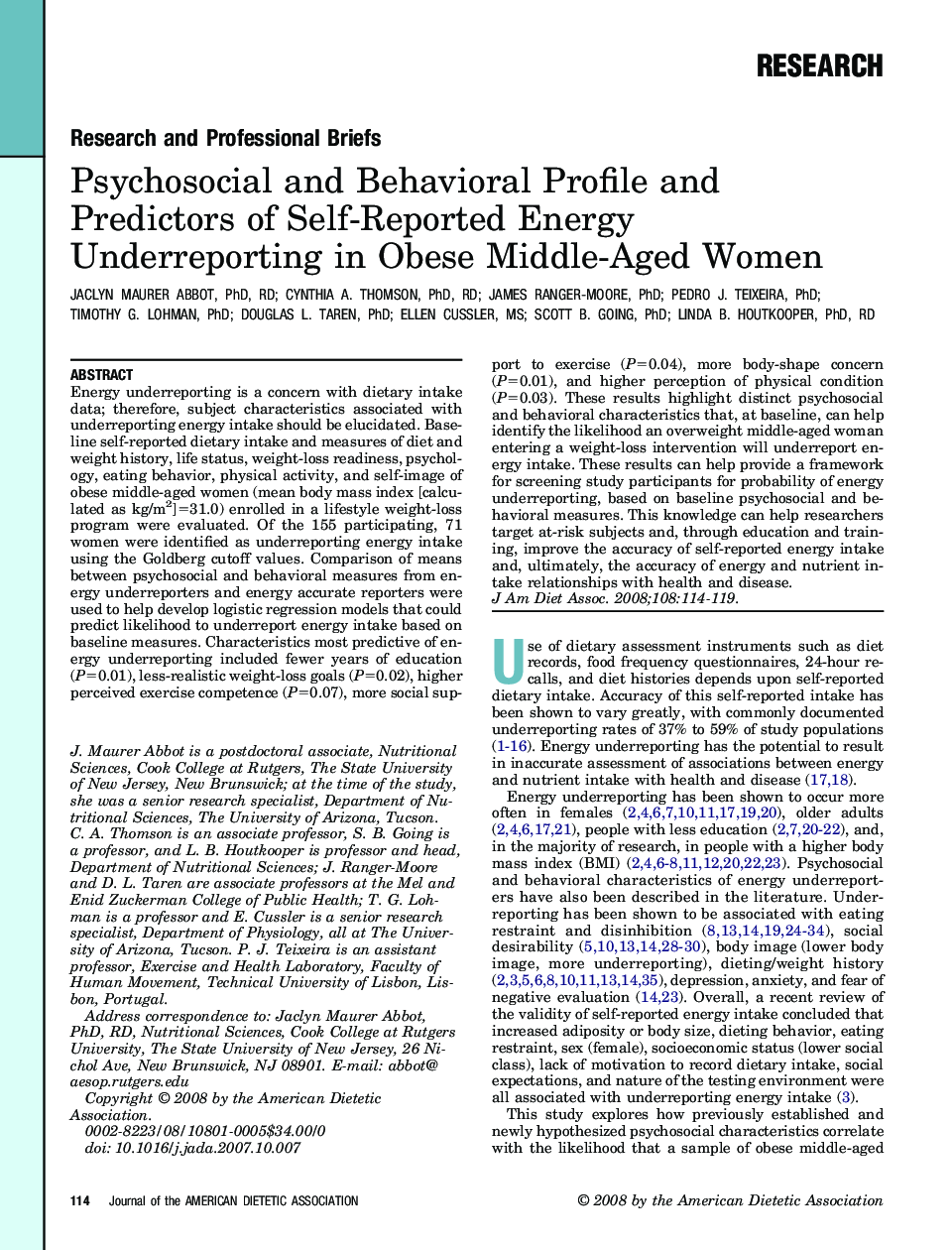| کد مقاله | کد نشریه | سال انتشار | مقاله انگلیسی | نسخه تمام متن |
|---|---|---|---|---|
| 2657836 | 1140039 | 2008 | 6 صفحه PDF | دانلود رایگان |

Energy underreporting is a concern with dietary intake data; therefore, subject characteristics associated with underreporting energy intake should be elucidated. Baseline self-reported dietary intake and measures of diet and weight history, life status, weight-loss readiness, psychology, eating behavior, physical activity, and self-image of obese middle-aged women (mean body mass index [calculated as kg/m2]=31.0) enrolled in a lifestyle weight-loss program were evaluated. Of the 155 participating, 71 women were identified as underreporting energy intake using the Goldberg cutoff values. Comparison of means between psychosocial and behavioral measures from energy underreporters and energy accurate reporters were used to help develop logistic regression models that could predict likelihood to underreport energy intake based on baseline measures. Characteristics most predictive of energy underreporting included fewer years of education (P=0.01), less-realistic weight-loss goals (P=0.02), higher perceived exercise competence (P=0.07), more social support to exercise (P=0.04), more body-shape concern (P=0.01), and higher perception of physical condition (P=0.03). These results highlight distinct psychosocial and behavioral characteristics that, at baseline, can help identify the likelihood an overweight middle-aged woman entering a weight-loss intervention will underreport energy intake. These results can help provide a framework for screening study participants for probability of energy underreporting, based on baseline psychosocial and behavioral measures. This knowledge can help researchers target at-risk subjects and, through education and training, improve the accuracy of self-reported energy intake and, ultimately, the accuracy of energy and nutrient intake relationships with health and disease.
Journal: Journal of the American Dietetic Association - Volume 108, Issue 1, January 2008, Pages 114–119